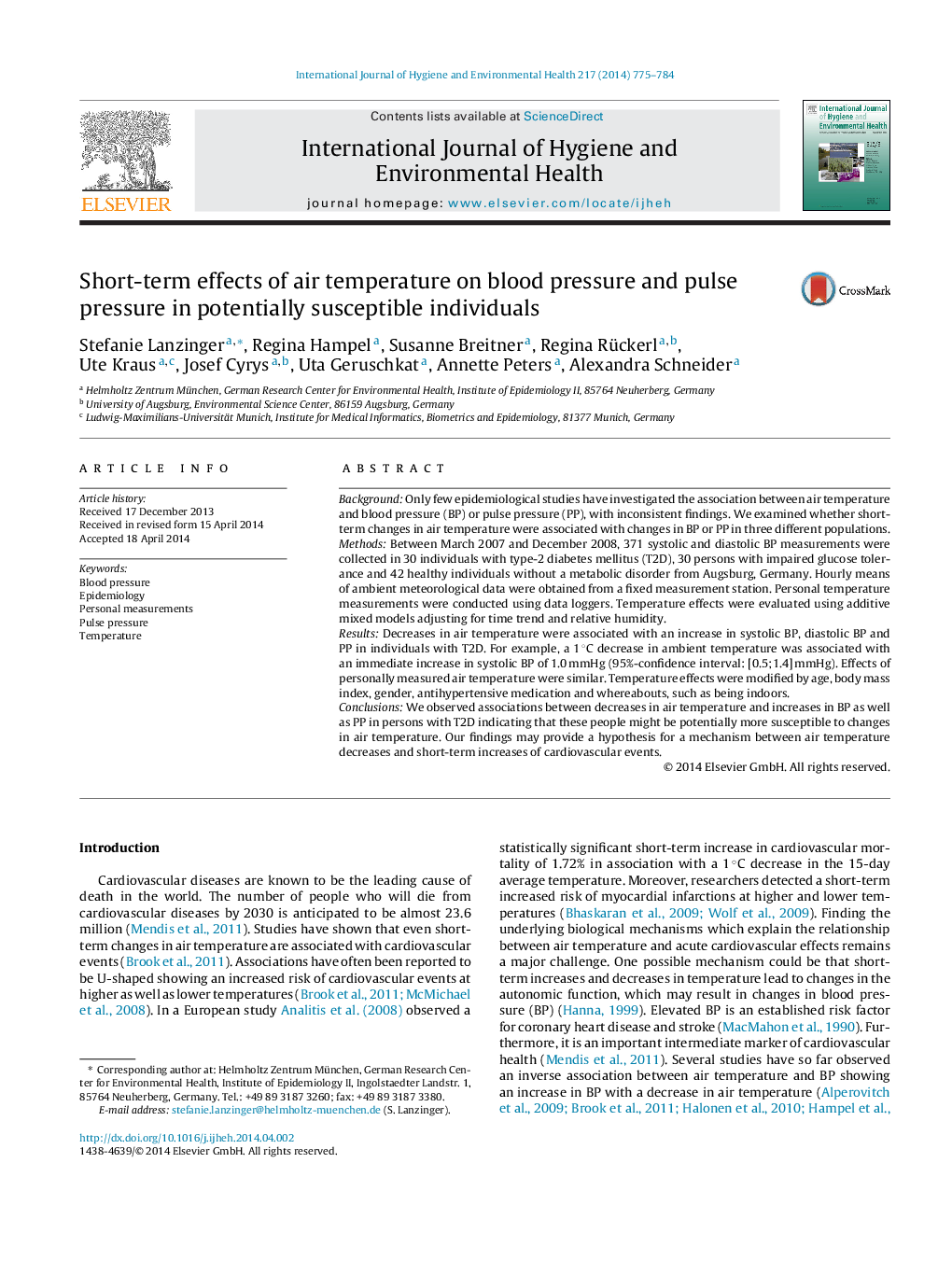| Article ID | Journal | Published Year | Pages | File Type |
|---|---|---|---|---|
| 2588452 | International Journal of Hygiene and Environmental Health | 2014 | 10 Pages |
BackgroundOnly few epidemiological studies have investigated the association between air temperature and blood pressure (BP) or pulse pressure (PP), with inconsistent findings. We examined whether short-term changes in air temperature were associated with changes in BP or PP in three different populations.MethodsBetween March 2007 and December 2008, 371 systolic and diastolic BP measurements were collected in 30 individuals with type-2 diabetes mellitus (T2D), 30 persons with impaired glucose tolerance and 42 healthy individuals without a metabolic disorder from Augsburg, Germany. Hourly means of ambient meteorological data were obtained from a fixed measurement station. Personal temperature measurements were conducted using data loggers. Temperature effects were evaluated using additive mixed models adjusting for time trend and relative humidity.ResultsDecreases in air temperature were associated with an increase in systolic BP, diastolic BP and PP in individuals with T2D. For example, a 1 °C decrease in ambient temperature was associated with an immediate increase in systolic BP of 1.0 mmHg (95%-confidence interval: [0.5;1.4] mmHg). Effects of personally measured air temperature were similar. Temperature effects were modified by age, body mass index, gender, antihypertensive medication and whereabouts, such as being indoors.ConclusionsWe observed associations between decreases in air temperature and increases in BP as well as PP in persons with T2D indicating that these people might be potentially more susceptible to changes in air temperature. Our findings may provide a hypothesis for a mechanism between air temperature decreases and short-term increases of cardiovascular events.
